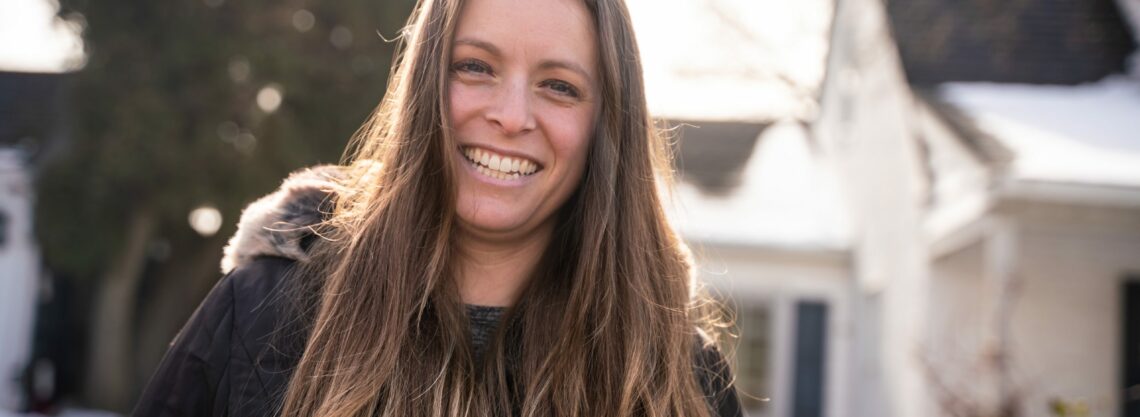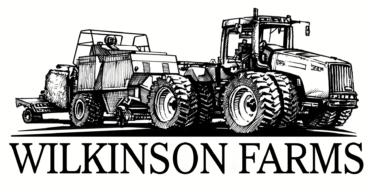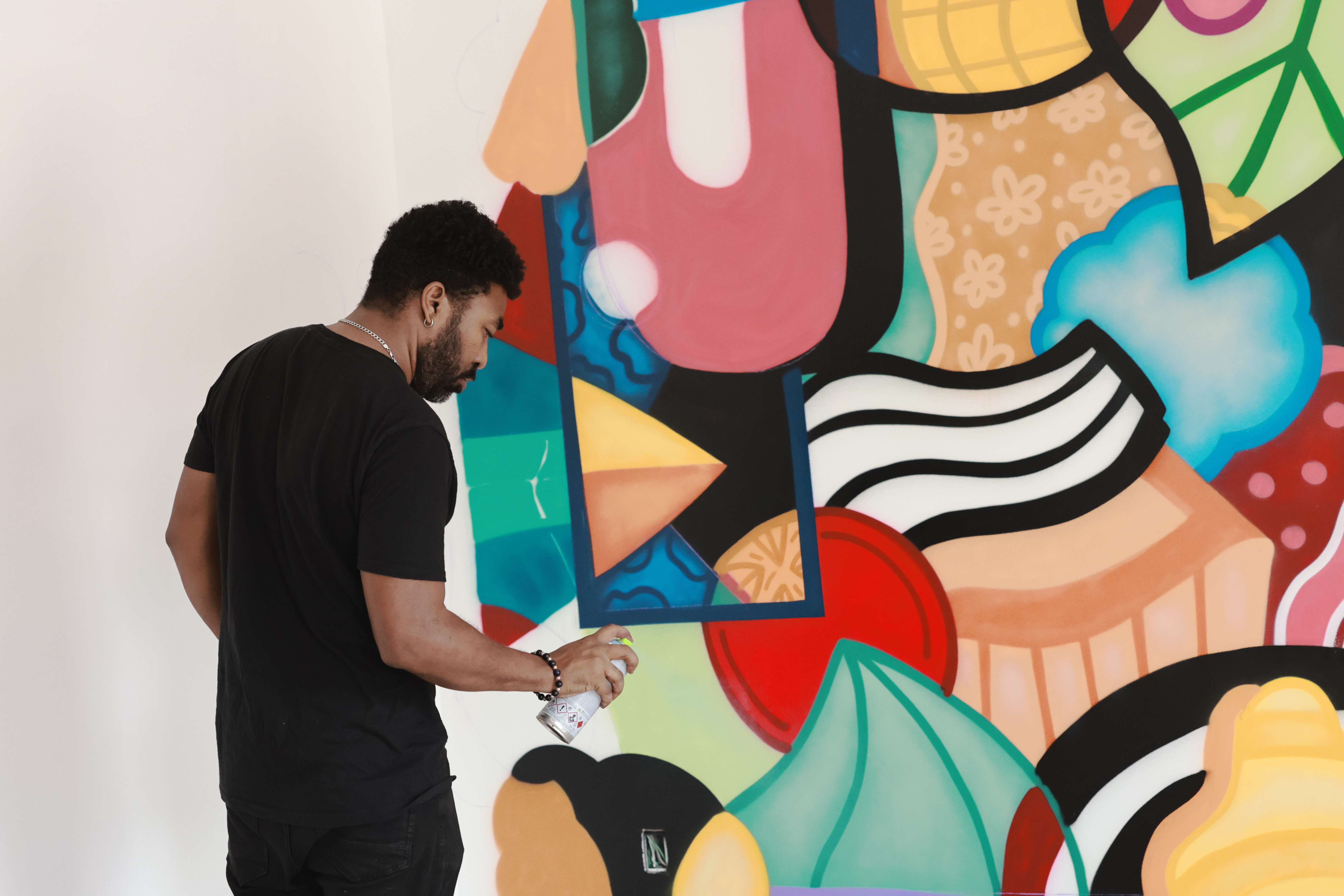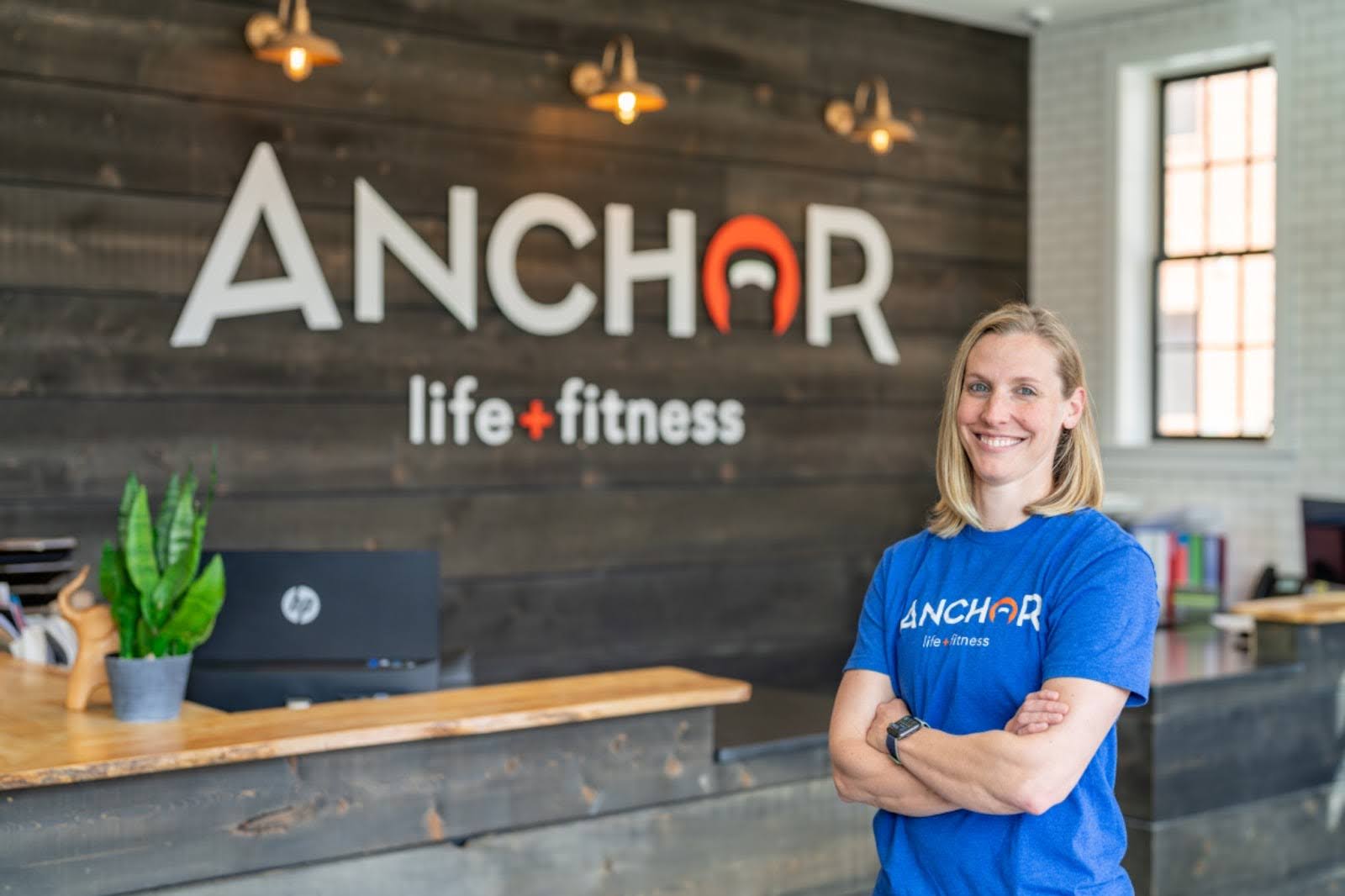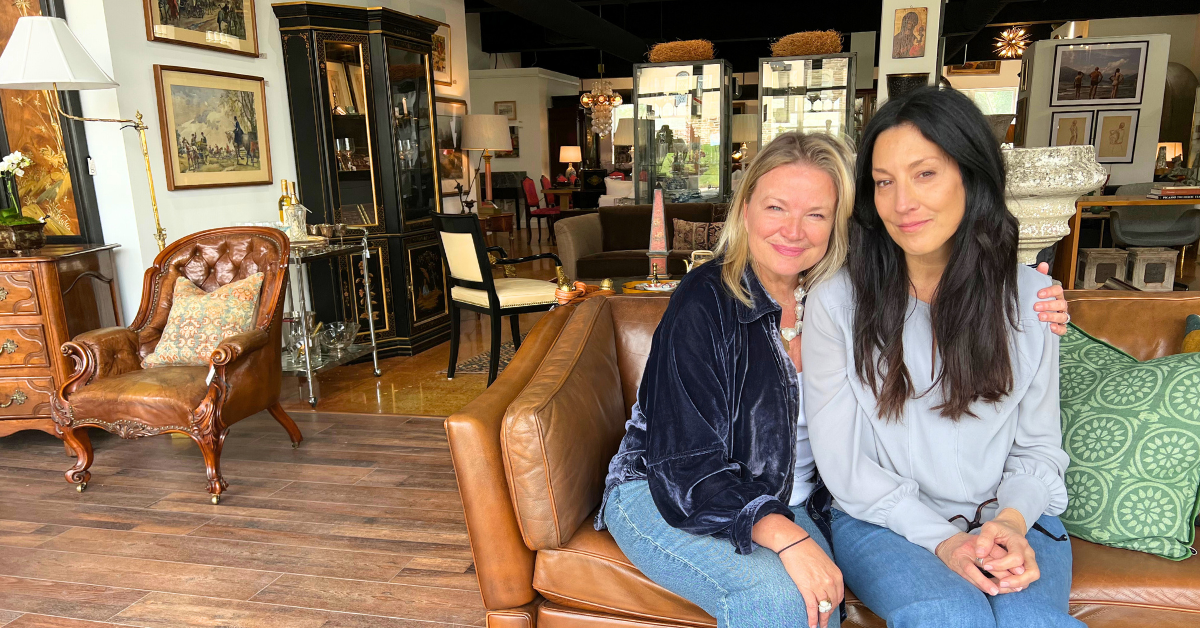WasteWell, a curbside composting service, offers Kennett area residents a simple, effective way to reduce waste and return vital nutrients to the soil in local farms and gardens.
In Kennett Square, the mushroom capital of the world and the home of Longwood Gardens and the KSQ Farmers Market, we know that healthy soil matters. In many ways, decomposition is at the heart of our local economy. But still, countless tons of organic materials go into our trash cans and then into landfills, where they emit climate-damaging methane as they break down.
Composting food waste is a way of life, and even the law, in many parts of the world. States like Vermont and California now mandate composting. In the absence of municipal systems to process organic waste, Jen Panaro’s service offers a solution for local residents who don’t have the space, time, or inclination to turn food waste into compost in their backyards.
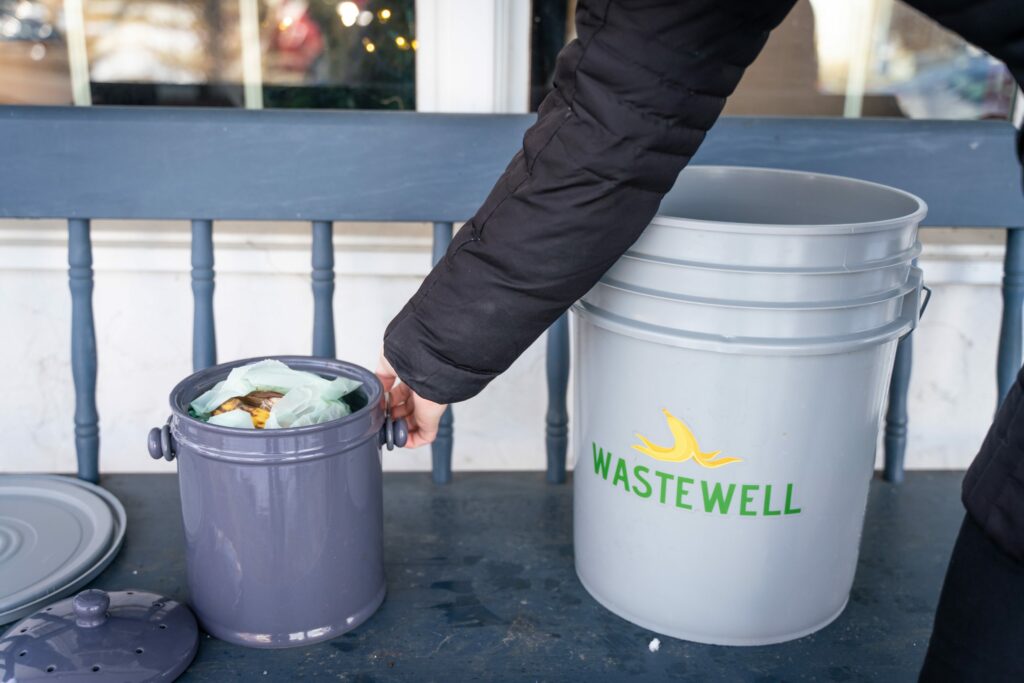
Fruits and vegetables, coffee grounds and filters, pasta, paper towels, and more can all go into a countertop bin and then deposited into WasteWell’s large air-tight bucket.
A Clean, Simple Solution
Panaro’s service takes the fear and mystery, as well as the mess, out of composting. “People wonder if it’s gross, but it’s not,” she says. It’s a simple, clean, efficient system. Part of the personalized service she happily provides is answering people’s questions and helping them make this small habit change that has a big impact. Every single WasteWell customer is amazed by how much less trash they have—usually about half. “We all throw so much in the trash that could be used to improve the soil and grow more, better, and healthier food,” Panaro says.
Panaro provides easy-to-use resources, including a printable PDF list of what can and can’t be composted—perfect for affixing inside a kitchen cabinet door. Fruits and vegetables, coffee grounds and filters, eggshells, rice, bread, pasta, paper towels, and more can all go into an attractive countertop bin lined with a bio bag and equipped with a charcoal filter. When the countertop bin is full, the bag can be deposited in WasteWell’s large gray 5-gallon bucket. Some customers keep these air-tight buckets outside, while others keep them tucked away in a closet or basement inside.
WasteWell customers leave their buckets outside on pick-up days every two weeks. Panaro empties and cleans the buckets and then delivers the compostable materials to Chris Pieretti, who processes the compost. Pieretti’s own business, Kitchen Harvest, provides a similar curbside pick-up service for both residential and commercial clients (including schools, businesses, and restaurants) in the western Philadelphia suburbs. Pieretti’s composting operation is hosted by Linvilla Orchards, who see their farm’s location in Media as strategic for collecting compostables and growing food for the local community.
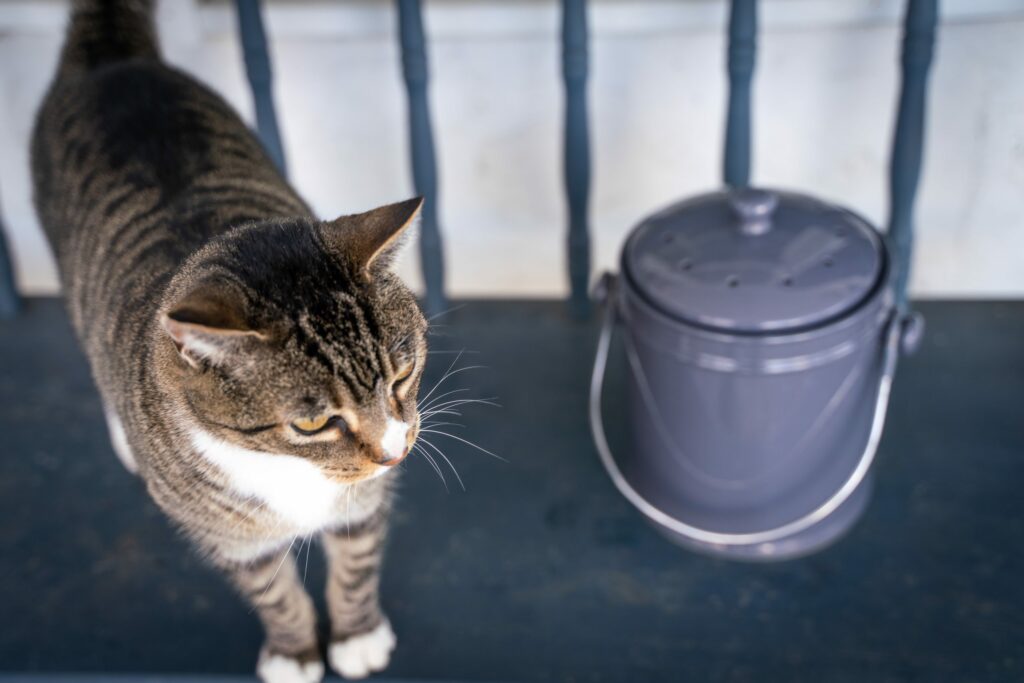
Zazzles the cat is a big fan of composting, too.
The process of creating certified organic compost involves mixing the compost with local shredded leaves, turning it, and incorporating air. A temperature of 140 degrees is maintained in ten- to fifteen-foot high piles at Linvilla Orchards, which allows nature to work its magic so that, six to nine months later, the compost materials become a rich, soil-like compost. “It’s all about understanding the fungus in the compost pile,” says Panaro, who recommends the book Entangled Life by Merlin Sheldrake. “I never realized how cool fungus is!” she says.
WasteWell customers also have the option of getting about 40 pounds of finished compost each spring. “It’s a way to see the process come full circle,” says Panaro, “returning finished compost to your garden that came (loosely speaking) from your food scraps.”
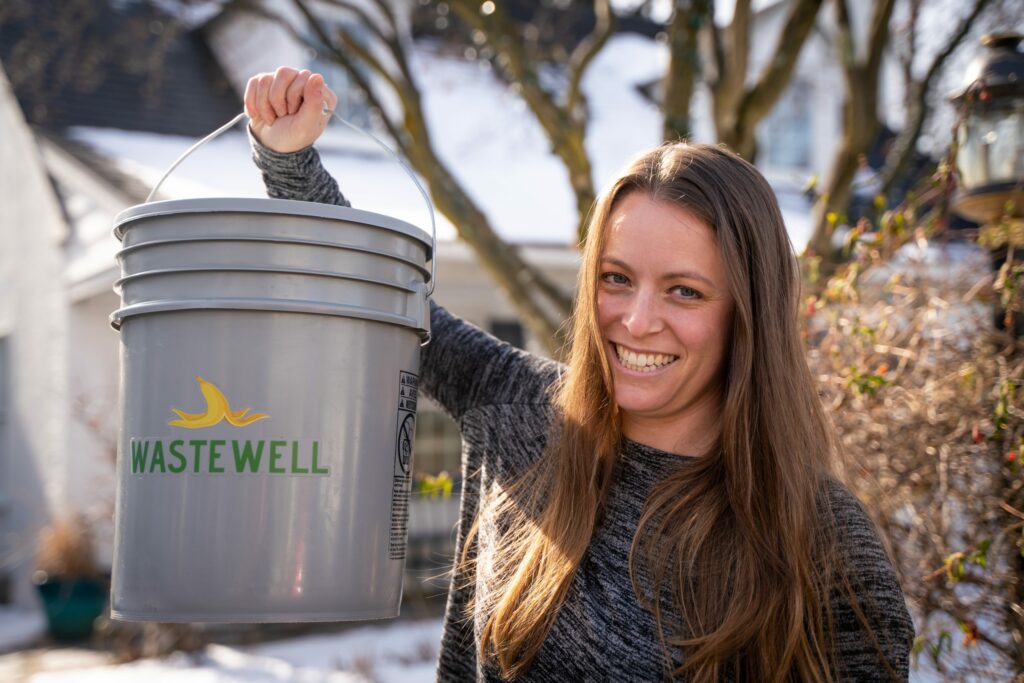
Every two weeks, Panaro picks up compostable materials from WasteWell customers.
Growing a Sustainable Business Model
Panaro grew up in the suburbs of Minneapolis, and although she didn’t spend her childhood wandering in the woods—as you might expect of someone who now writes about and advocates for eco-friendly living in between collecting other people’s food scraps—she did embrace the outdoor culture. After going to college in Boston and living for a few years in Chicago, she and her husband moved back to his hometown of Philadelphia.
Concern for sustainability in the fashion industry initially led Panaro to delve more deeply into other kinds of waste reduction and diversion—like composting. She grew more and more curious about composting through writing about it on her blog at Honestly Modern—a bright, welcoming online space that offers lots of accessible resources, tips, and ideas for eco-friendly living for modern families. “I want to leave a healthier planet for my sons and to model the importance of being an advocate for change,” she says.
Panaro’s curiosity about composting led to some lifestyle changes—and eventually grew into a business. When she decided to start WasteWell, in August 2020, she still had lots of questions but she knew two things: she loved composting; and after 15 years she didn’t want to remain in her corporate job as a CPA. With a bold combination of energy and determination, she quit her job and decided she’d figure it out along the way.
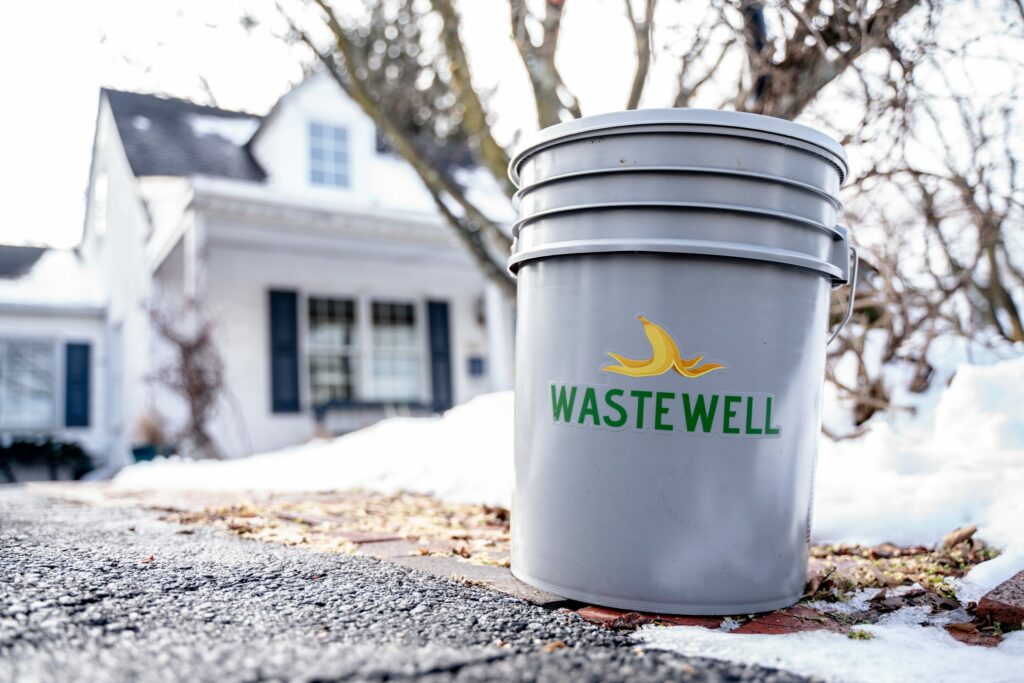
WasteWell customers leave their buckets curbside for pickup every two weeks.
As she continues to deepen her knowledge of composting and waste diversion options, Panaro also continues to learn and refine her business model. Not long after launching WasteWell, demand had outgrown her capacity as a solopreneur. She had customers over a broad geographic area and was being offered large municipal contracts. While she had successfully identified a market opportunity, the direction and scale didn’t feel right. “I have two kids, and I don’t want to run a full-time waste management company,” she says.
Listening to her intuition and taking a step back just as her business was starting to take off was a difficult decision—in some ways. The counter-cultural choice was clearly the right and sustainable one. She looked at a map and decided to focus on areas where she had a certain customer density already—including Kennett, Chadds Ford, and North Wilmington.
“It’s going well and growing in the way I want it to,” she says with a smile. “Slowly.” She values being a local small business and making community connections—with residents as well as with like-minded businesses and organizations supporting sustainability efforts like the KSQ Farmers Marketand Logical Living.
Panaro would also love to use the local service model she’s developed to help someone looking to start a small local side business. “There are lots of opportunities for people to help their community this way,” she says. “You don’t need thousands of customers for it to work.”
Understanding Composting Without Dumbing It Down
Those who want to try turning their food scraps into compost themselves will find a treasure trove of resources and encouragement at Honestly Modern. Panaro is passionate about education and intentional about helping people understand composting in a way that makes sense. Composting isn’t rocket science. “But it’s more than five easy steps,” she says. “Most resources are oversimplified or too ‘science-y’ and complex.”
Panaro has even created a “Can I Compost . . . ?” interactive tool to help people navigate those inevitable moments of confusion, wavering between the trash can and the compost bin. “If it ever lived, it can be composted,” Panaro says, “but you have to decide how you’re going to compost before you decide what you can compost.” Anyone who has ever tried backyard composting and ended up with a pile of eggshells will understand.
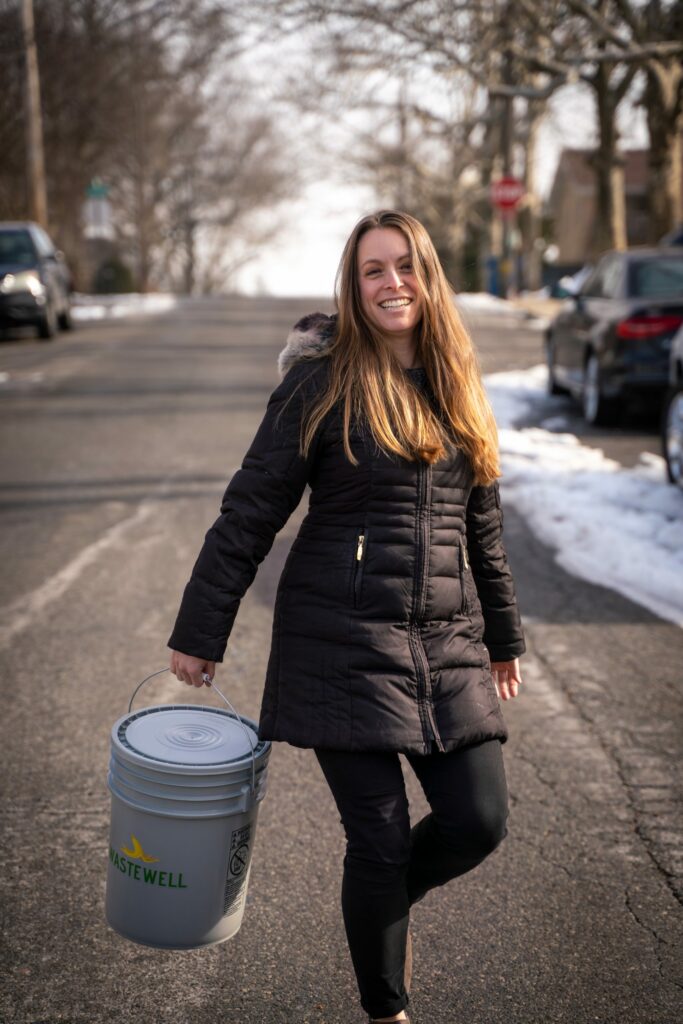
Panaro would love to pick up compost buckets all along Magnolia Street—and throughout the Borough.
A Community Challenge
The overwhelming scale of climate change can leave us feeling helpless, but Panaro encourages people to take small steps and make lifestyle changes that are sustainable. By reducing some of the common barriers to composting, WasteWell enables local residents to take one of those steps that, week by week, will make a difference.
What if one of the cool things about Kennett were the fact that every household had a compost bin out back or a WasteWell bucket out front and municipal waste was significantly reduced?
Find out more at WasteWell or email Jen at jen@mywastewell.com
Photo by Dylan Francis
